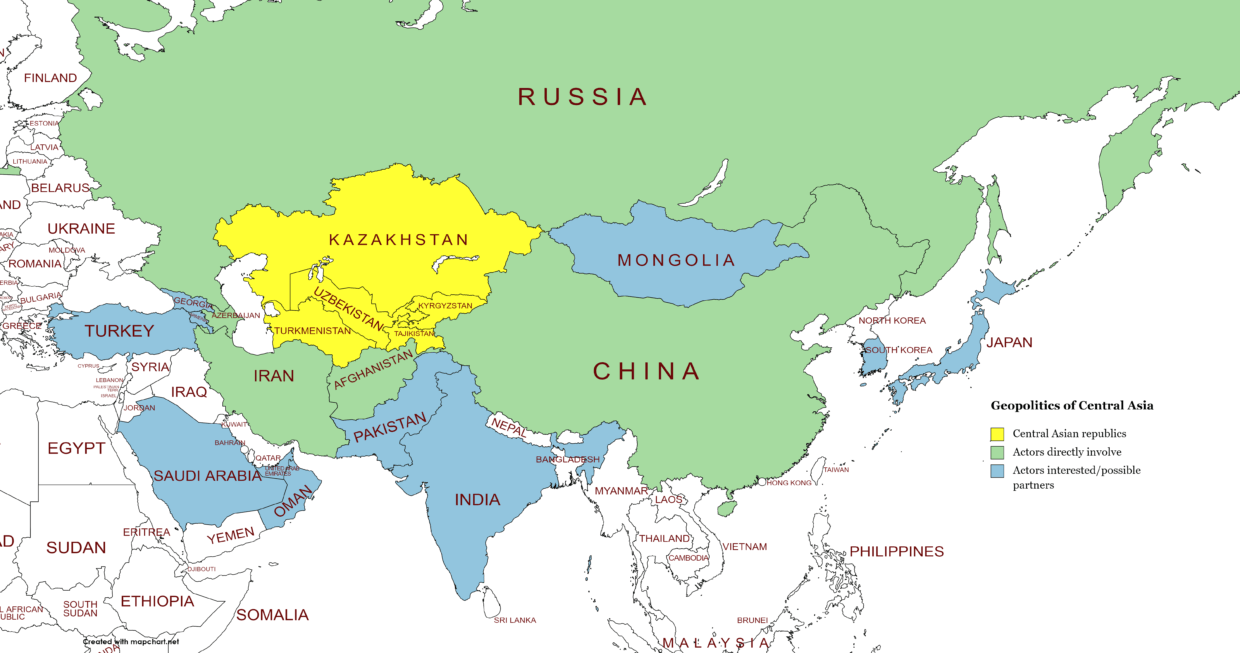UAE investments in Turkmenistan confirm Abu Dabhi’s potential role in Central Asia

The recent visit of a Turkmen delegation in Abu Dhabi emphasised the rising role that the United Arab Emirates want to play in Central Asia, focusing their efforts on investment projects and diplomatic and trade cooperation.
On June 9th, 2021, on behalf of the President of Turkmenistan, a Government delegation headed by the Deputy Chairman of the Cabinet of Ministers and the Chairman of the Supreme Control Chamber of Turkmenistan Serdar Berdimuhamedov paid an official visit to the United Arab Emirates. The delegation included heads and representatives of several key ministries and departments of Turkmenistan.
On June 10th, 2021, the Turkmen delegation met with the Crown Prince of Abu Dhabi, Deputy Supreme Commander of the UAE Armed Forces Sheikh Mohammed bin Zayed Al Nahyan. During the meeting, the sides noted with satisfaction the dynamic development of the Turkmen-Emirati relations, which is facilitated by a regular and confidential political dialogue at the highest level. Furthermore, the parties expressed their interest in strengthening bilateral cooperation, particularly in the trade, economic and investment spheres.
During the same day, there was also a meeting between the Turkmen delegation and the Deputy Prime Minister, Minister of Presidential Affairs of the United Arab Emirates Sheikh Mansour bin Zayed Al Nahyan. The two sides stressed the importance of this visit of the Turkmen delegation led by Serdar Berdimuhamedov to the UAE to expand further the range of interaction in energy, transport, investment, and agriculture. The parties also noted the value of the international exhibition ‘EXPO-2020’ scheduled to be held in Dubai, in which the Turkmen side is preparing to take an active part.
Serdar Berdimuhamedov also met the Minister of Foreign Affairs and International Cooperation of the United Arab Emirates, Sheikh Abdullah bin Zayed Al Nahyan. They discussed bilateral ties between Turkmenistan and the UAE in the political, diplomatic, trade-economic and cultural-humanitarian fields.
In addition, the Turkmen delegation met with the Director-General of the Abu Dhabi Development Fund, Mohammed Saif Al Suwaidi. The parties noted the intensification of Turkmen-Emirati ties since, in February, the Government of Turkmenistan signed bilateral documents with the Abu Dhabi Development Fund, giving a significant impetus to trade, economic and investment ties. At the recent meeting, the parties discussed specific steps to implement projects in the gas, chemical, financial and transport sectors, planned to be implemented in Turkmenistan with the participation of the Emirates side.
Why does this matter? Because in the last decade, Abu Dhabi has increased its investments and economic presence in Central Asia, rising as one of the most dynamic Gulf countries in the region. As we reported recently about the Qatari interests in Central Asia and the possibility that Doha will favour the Iranian foreign policy in Central Asia (Read more: Cooperation among Qatar and Uzbekistan), it should be noted that the UAE might counterbalance the Qatari and Iranian strategies in the region and support its historic allies in the Middle East.
It is undeniable that Central Asia plays a strategic role in the Eurasian geopolitical chessboard and inside the international arena. The region has been the battleground among the West and Russia for centuries and recently has witnessed the Chinese economic expansion thanks to Beijing’s Belt and Road Initiative. Considering that most of the Central Asian population is Muslim, Gulf states plan to expand their influence in the region with a tacit consensus from the United States and the European Union that would like to see Central Asia more independent from Russia and China. The UAE investments in Turkmenistan confirm this geopolitical trend and Abu Dhabi’s interests in becoming one of the leading partners of Ashgabat since the enormous potentialities that this post-Soviet republic offers in the oil & gas market and logistics.
Author: Guido Keller
